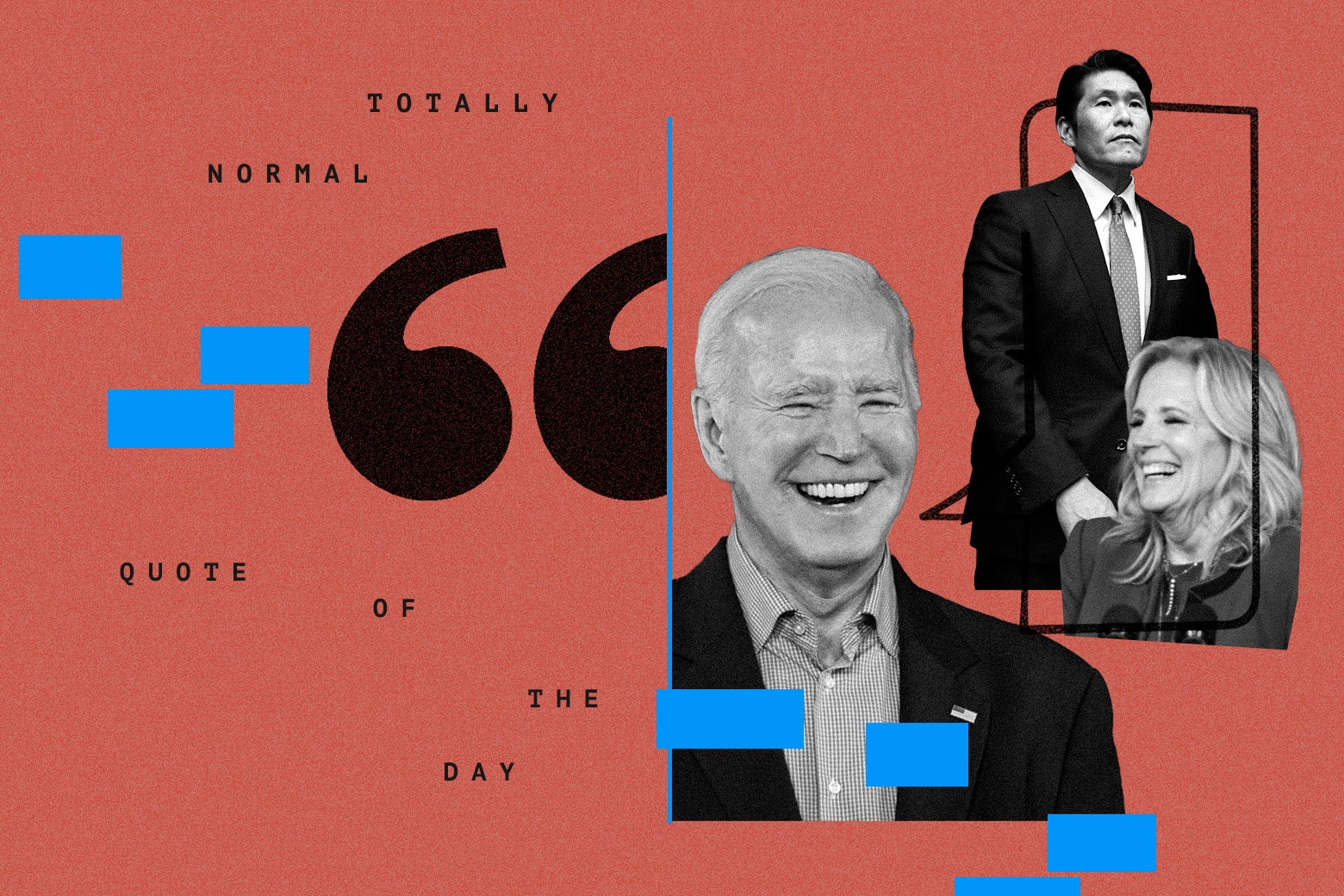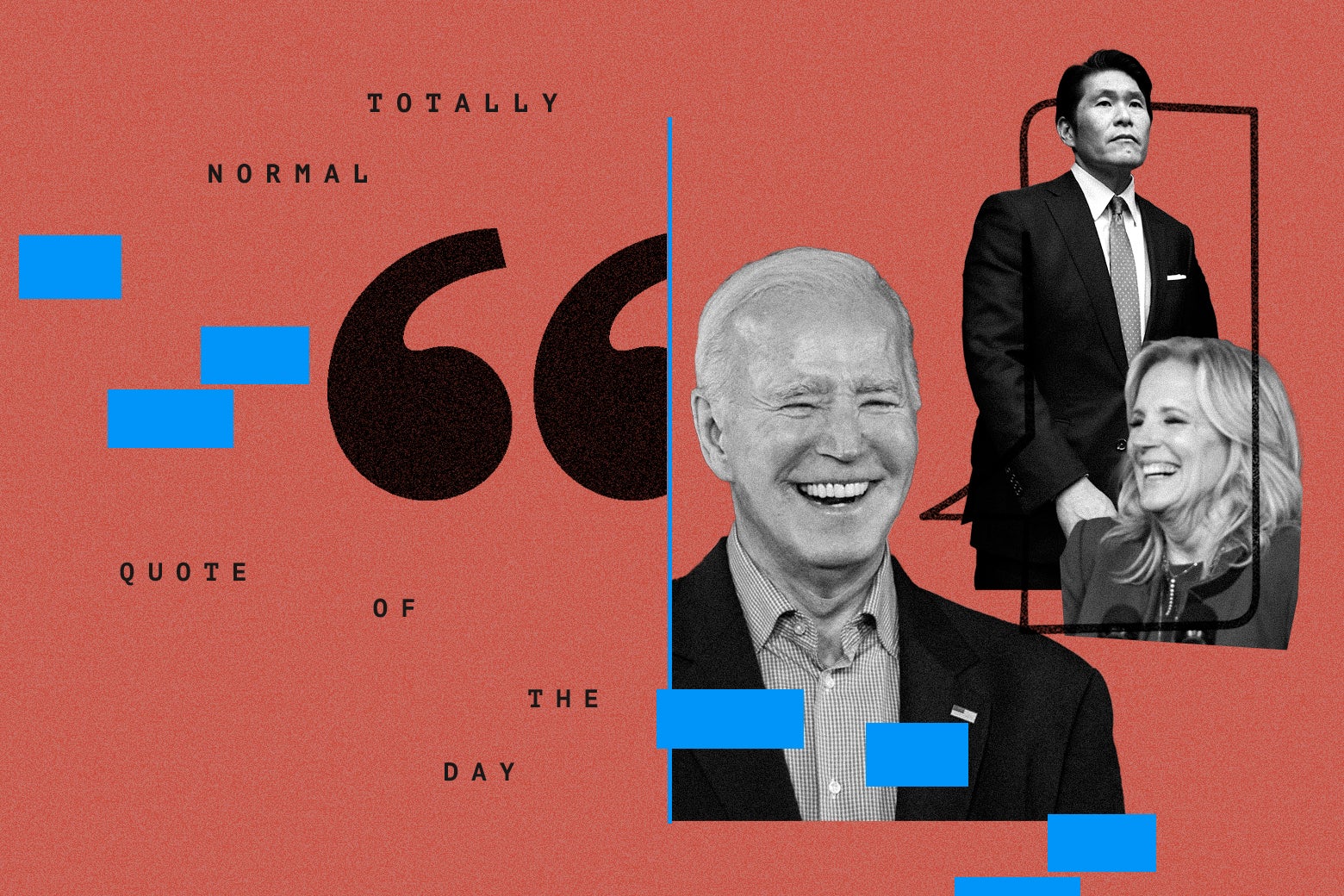President Joe Biden is gearing up for a rematch with former President Donald Trump in November, and multiple polls show his age is a major concern for many voters. The special counsel Robert Hur claimed that President Joe Biden had a poor memory and couldn't remember when his own son died. However, the transcript of their interview shows that it was actually Biden who first mentioned Beau Biden's death.
President Biden's Age and Memory: A Major Concern for Voters in November Rematch with Trump
Washington, District of Columbia United States of AmericaMultiple polls show his age is a major concern for many voters.
President Joe Biden is gearing up for a rematch with former President Donald Trump in November.




Confidence
80%
Doubts
- The transcript of their interview shows that it was actually Biden who first mentioned Beau Biden's death.
Sources
85%
What special counsel Robert Hur claimed about Beau Biden – and what transcript actually shows
USA Today Wednesday, 13 March 2024 00:00Unique Points
- The special counsel Robert Hur claimed that President Joe Biden had a poor memory and couldn't remember when his own son died. However, the transcript of their interview shows that it was actually Biden who first mentioned Beau Biden's death.
- President Joe Biden is gearing up for a rematch with former President Donald Trump in November, and multiple polls show his age is a major concern for many voters.
Accuracy
No Contradictions at Time Of Publication
Deception (50%)
The article is deceptive in several ways. Firstly, the title of the article claims that Robert Hur claimed Beau Biden died when he was only 81 years old. However, this claim is not supported by any evidence presented in the transcript or report released by Hur. In fact, it appears that Biden's memory was significantly limited and his recollection of events related to Beau's death were incorrect.- The article claims that Robert Hur claimed Beau Biden died when he was only 81 years old. However, this claim is not supported by any evidence presented in the transcript or report released by Hur.
Fallacies (85%)
The article contains an informal fallacy known as 'appeals to authority' when the author cites Hur's report without providing any evidence or context. Additionally, there is a formal fallacy called 'circular reasoning' when Biden says that he doesn't need anyone to remind him of his son dying and then uses this statement as proof that he remembers it well.- Hur’s report concluded that Biden was careless in his handling of classified documents scattered across his Delaware residence. But federal investigators declined to pursue criminal charges against Biden in part, they said, because of his “poor memory.”
- Biden is gearing up for a brutal rematch with former President Donald Trump in November, and multiple polls show Biden’s age is a major concern for many voters. Hours after Hur’s report became public on Feb. 9, a visibly angry Biden denounced Hur’s conclusions in a prime time address from the White House.
- The transcript shows that it was Biden, not Hur, who first raised the topic of Beau Biden's death.
Bias (100%)
None Found At Time Of Publication
Site Conflicts Of Interest (100%)
None Found At Time Of Publication
Author Conflicts Of Interest (0%)
None Found At Time Of Publication
68%
Top news outlets acknowledge Hur’s characterization of Biden’s mental state didn’t match reality
CNN News Site: In-Depth Reporting and Analysis with Some Financial Conflicts and Sensational Language Oliver Darcy Wednesday, 13 March 2024 10:50Unique Points
- The special counsel Robert Hur claimed that President Joe Biden had a poor memory and couldn't remember when his own son died. However, the transcript of their interview shows that it was actually Biden who first mentioned Beau Biden's death.
- President Joe Biden's occasional memory lapses have been causing him problems in his reelection campaign.
Accuracy
- New York CNN acknowledged that Special Counsel Robert Hur's characterization of President Joe Biden's mental faculties was off base.
- , The Wall Street Journal declared that the transcripts of Biden's deposition with Hur painted a more nuanced picture than the report indicated.
- The New York Times found that Biden appeared clearheaded despite having fumbled some dates.
- The Washington Post concluded Biden doesn't come across as being as absent-minded as Hur has made him out to be.
Deception (50%)
The article acknowledges that the transcripts of Biden's deposition with Hur revealed a more nuanced picture than what was reported in his report. The Wall Street Journal and New York Times both found that Biden appeared clearheaded during his testimony despite some misleading information presented by Hur. Additionally, it is noted that Hur went out of his way to praise Biden's memory which contradicts the characterization he made in the report. However, not all news organizations acknowledged this discrepancy.- The Wall Street Journal declared that the transcripts of Biden’s deposition with Hur released on Tuesday painted “a more nuanced picture” than the report indicated.
Fallacies (100%)
None Found At Time Of Publication
Bias (85%)
The article acknowledges that the transcripts of Biden's deposition with Hur revealed a more nuanced picture than what was reported in his report. The author also notes that some news outlets have acknowledged this and corrected their reporting accordingly. However, not all news outlets have done so.- The Wall Street Journal declared that the transcripts of Biden's deposition with Hur painted a more nuanced picture than the report indicated.
Site Conflicts Of Interest (50%)
None Found At Time Of Publication
Author Conflicts Of Interest (0%)
None Found At Time Of Publication
64%
It’s Not Biden’s Memory Issues That Stand Out in His Special Counsel Interview
Slate Uwa Ede-Osifo Wednesday, 13 March 2024 19:37Unique Points
- President Joe Biden's occasional memory lapses have been causing him problems in his reelection campaign.
- The most explosive apparent evidence of the issue came in February when special counsel Robert K. Hur issued his report on Biden's handling of classified documents and concluded that in interviews the president came off as an elderly man with poor memory.
Accuracy
- His recent so-called gaffes, such as moments where he confused foreign leaders with their dead predecessors, have only underlined these worries.
Deception (50%)
The article is deceptive in several ways. Firstly, the author uses a quote from Biden's interview with special counsel Robert K. Hur to claim that he comes off as an elderly man with poor memory when this is not entirely accurate. The transcript shows that while Biden does mention his age and memory issues at times, he also contradicts these statements by saying his memory is fine and none of the things people thought about him were true.- The author uses a quote from Biden's interview with special counsel Robert K. Hur to claim that he comes off as an elderly man with poor memory when this is not entirely accurate.
Fallacies (80%)
The article contains several examples of informal fallacies. The author uses anecdotes and personal experiences to make a point about the president's memory issues without providing any evidence or analysis. Additionally, the author makes assumptions about the reader's knowledge and opinions on certain topics, which is not appropriate in journalism.- The adoration for his wife
- He told a story of a legal case he worked on
- He spoke about a past trip to Mongolia
Bias (85%)
The author uses the phrase 'totally normal' to describe a statement made by President Biden in his interview with special counsel Robert K. Hur. This is an example of using language that dehumanizes one side as extreme or unreasonable.- ]I just hope you didn’t find any risqué pictures of my wife in a bathing suit.
Site Conflicts Of Interest (50%)
The author has a conflict of interest on the topic of President Joe Biden's memory issues as they are reporting for Slate which is owned by Comcast. Additionally, the article mentions that Special Counsel Robert K. Hur was appointed to investigate classified documents and memory issues related to President Biden.- The author reports for Slate which is owned by Comcast.
Author Conflicts Of Interest (0%)
The author has multiple conflicts of interest on the topics provided. The article discusses President Joe Biden and Special Counsel Robert K. Hur's interview, which raises concerns about classified documents and memory issues. However, the author also includes personal anecdotes that may be seen as biased or inappropriate.- The author uses a quote from former President Donald Trump to criticize Biden's handling of classified documents.
68%
How Robert Hur’s Portrayal of Biden’s Memory Compares With the Transcript
The Name Of The NZ Prefix. I PWA NZI.P.Was Dropped. Charlie Savage Tuesday, 12 March 2024 12:00Unique Points
- . The special counsel, Robert K. Hur, accused the president last month of “significant” memory problems.
- . The interview transcript offers context to his report.
- The special counsel's report touched off a political furor amid President Biden's re-election campaign.
Accuracy
No Contradictions at Time Of Publication
Deception (30%)
The article is deceptive in several ways. Firstly, the author uses sensationalism by stating that Robert Hur's portrayal of Biden's memory compares with the transcript when it does not. The transcript only provides context to Hur's report and does not compare them directly. Secondly, the article implies that there is a political furor surrounding President Biden's re-election campaign due to Hur's report, but no evidence of this is provided in the article itself. Thirdly, the author uses selective reporting by only mentioning certain details from Hur's report and not providing any context or explanation for why these were chosen.- The transcript does not compare Robert Hur's portrayal of Biden's memory with his own words.
Fallacies (75%)
The article contains several examples of informal fallacies. The author uses an appeal to authority by citing the report of a special counsel without providing any context or evidence for their conclusions. Additionally, the author repeatedly quotes Mr. Biden's lawyers challenging the damaging portrait by Mr. Hur, which could be seen as inflammatory rhetoric and an attempt to discredit Mr. Hur's findings.- The article contains several examples of informal fallacies.
Bias (100%)
None Found At Time Of Publication
Site Conflicts Of Interest (50%)
There are multiple examples of conflicts of interest in this article. The author is a reporter for the New York Times and has previously reported on President Biden's memory issues. Additionally, the special counsel Robert K. Hur who was quoted in the article has a professional affiliation with President Biden as he served as his personal attorney during his time at Delaware Chancery Court.- The author is a reporter for The New York Times and has previously reported on President Biden's memory issues.
Author Conflicts Of Interest (50%)
None Found At Time Of Publication